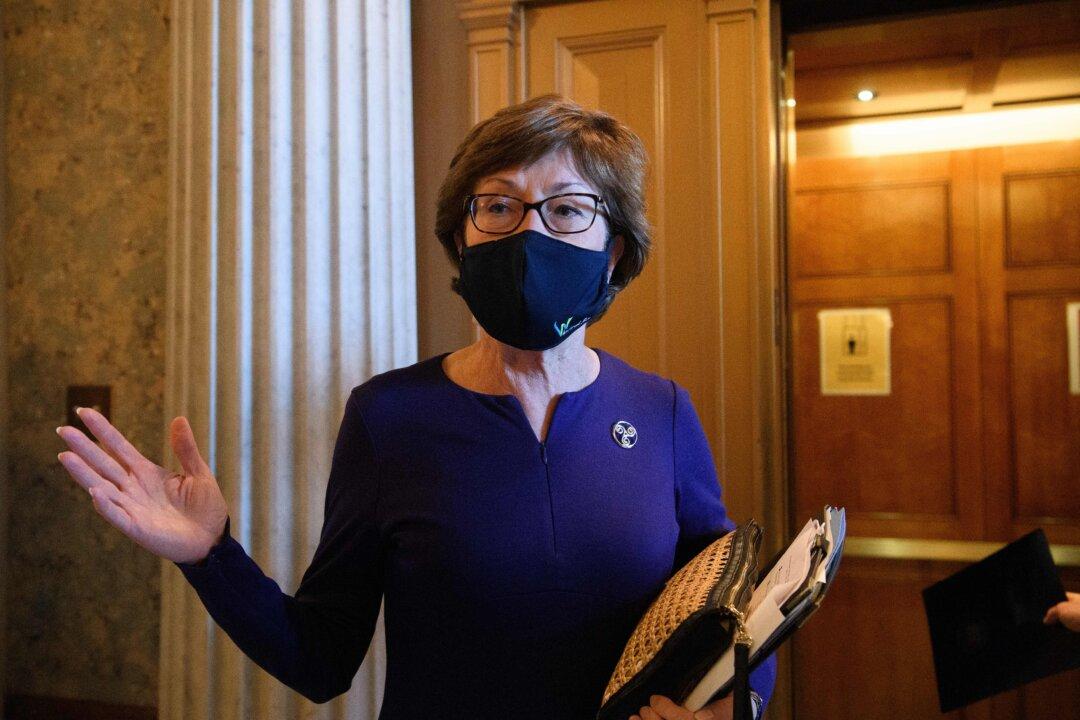Sen. Susan Collins (R-Maine) said Tuesday that she'll vote “no” on whomever President Donald Trump nominates to the Supreme Court, if the Senate votes on the nominee before the Nov. 3 election.
“I made it very clear, yes, that I did not think there should be a vote prior to the election. And if there is one, I would oppose the nominee not because I might not support that nominee under normal circumstances, but we’re simply too close to the election,” Collins told reporters in Washington.





